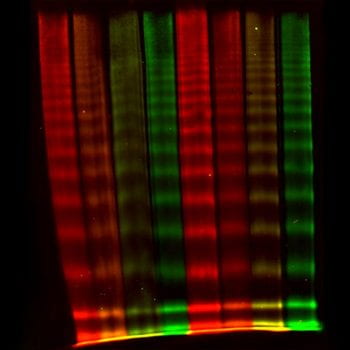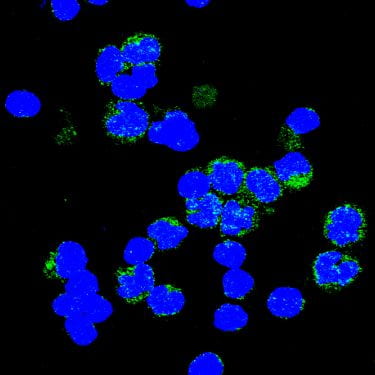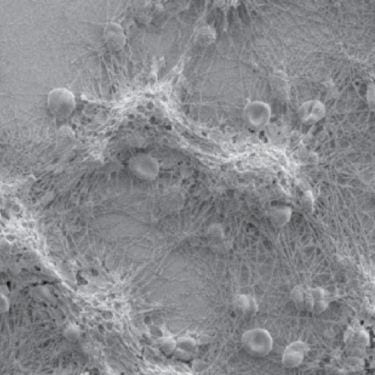Our goal is to discover genetic and biological determinants of bleeding and thrombosis.
The Di Paola lab, headed by Jorge Di Paola, MD, comprises a diverse group of physician scientists, geneticists, bioinformaticists, and basic scientists. Advances in technology and decreases in costs of whole-genome sequencing have enabled us to pursue innovative approaches to discovering the genetic and biological determinants of a variety of conditions. We extend the scope of our research through both national and international collaboration. Using state of the art equipment and techniques, we aim to set the stage for the development of novel therapies to improve quality of life for those living with bleeding and thrombotic disorders.
Areas of research
von Willebrand disease & von Willebrand factor
We seek to understand the genetic and biological underpinnings of von Willebrand disease (VWD) and other conditions related to abnormal von Willebrand factor (VWF). The bionformatic core in our lab is engaged in an international collaboration wherein we are developing an interactive database of clinical research data and whole sequenced genomes of patients with VWD and conducting bioinformatic analyses for the group.
Platelet Research & Disorders
Our lab, among others, discovered and reported that mutations in NBEAL2 and ETV6 cause gray platelet syndrome and thrombocytopenia with predisposition to leukemia respectively. We have developed several genomic approaches to understand the molecular consequences of these genetic changes. We have also recently identified TNF-α as the key aging-associated proinflammatory cytokine responsible for platelet hyperreactivity.
Basic Hemostasis
Using CRISPR technologies, we have created genetically-modified mice to study the impacts of different isoforms of Tissue Factor Pathway Inhibitor on hemostasis. Tissue Factor is critical in hemostasis and contributes to thrombosis, inflammation, and cancer. Our lab has also collaborated to develop microfluidic platforms to study coagulation under flow. We have used these to determine normal ranges and study bleeding disorders such as hemophilia and VWD.
Interested in joining us?
The Di Paola Lab focuses on the genetics, genomics, and biology of bleeding and thrombosis and mechanisms of platelet activation.




